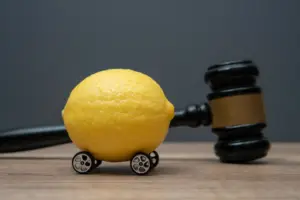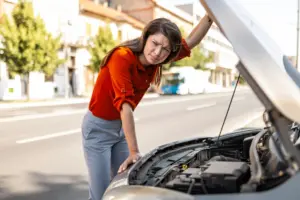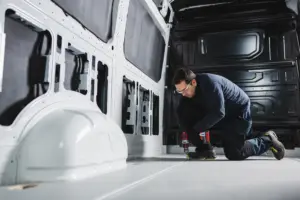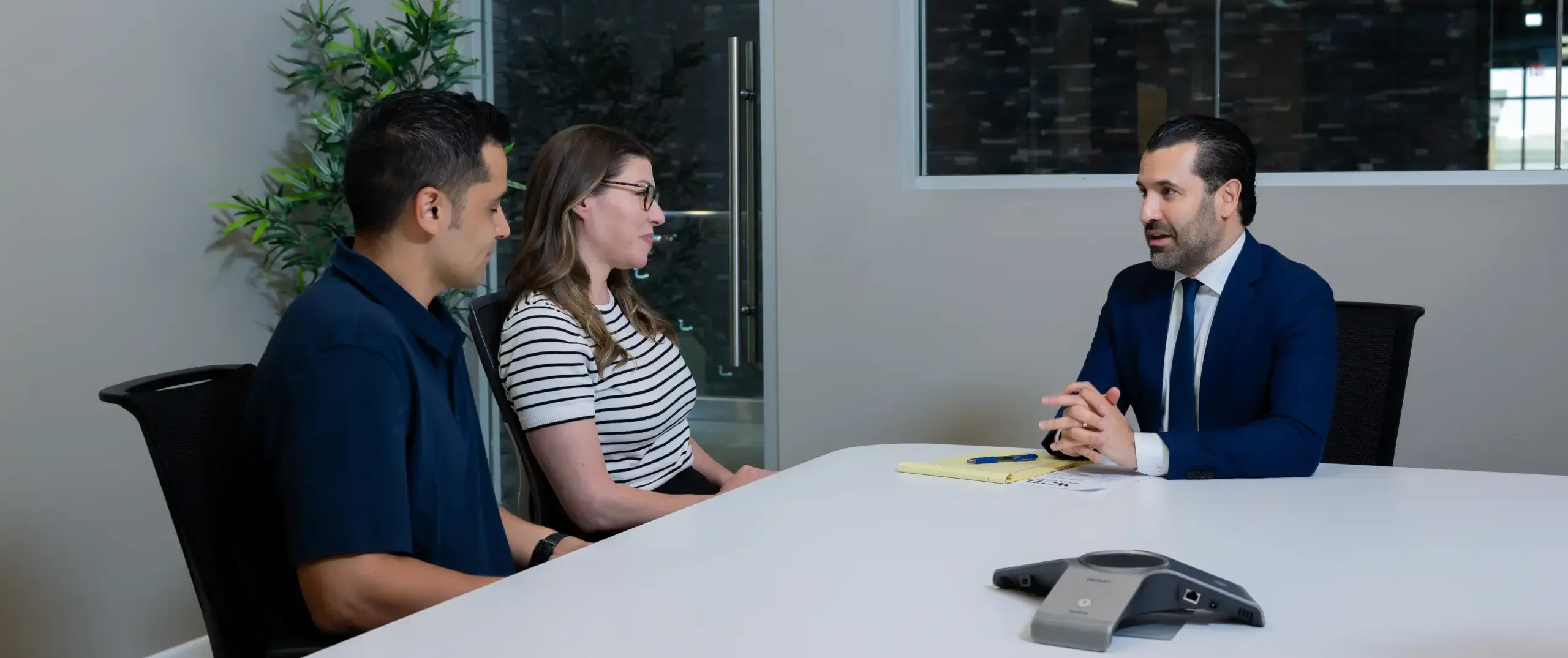When a vehicle starts to develop serious defects, California’s Lemon Law can provide protections to affected consumers. Many people may wonder whether this applies to food trucks, and the answer is yes. Commercial and personal trucks can qualify under certain conditions. The law is made to help consumers and small business owners address defective vehicles that cannot be fixed despite the numerous repair attempts made.
Pursuing a lemon law claim can be difficult, especially when dealing with trucks, warranty issues, or manufacturers who are uncooperative. At West Coast Trial Lawyers, our legal team will guide you every step of the way, from documenting repeated repair attempts to negotiating with manufacturers. We will work diligently to ensure your rights are protected and you get a favorable outcome.
To schedule a FREE consultation, you can connect with us by calling (213) 927-3700 or completing our easy online contact form.
What Qualifies for Lemon Law in CA?

In California, the Lemon Law is part of the Song-Beverly Consumer Warranty Act (California Civil Code §§ 1790–1795.8), with provisions beginning at § 1793.2(d) and § 1793.22 (the Tanner Consumer Protection Act). These laws highlight what qualifies a vehicle as a lemon and what remedies are granted to consumers.
Protections may be granted to a vehicle purchased or leased in California while it is still under the manufacturer’s new vehicle warranty, and has a substantial defect that impairs its use, value, or safety. The defect must be ongoing after a reasonable number of attempts are made by the authorized dealer or manufacturer.
Under CIV 1793.22(b), a presumption may apply when: the vehicle has been repaired four or more times for the same problem, it has went through two or more repair attempts for an issue that can cause death or serious bodily harm, or it has been out of service for repair for 30 or more cumulative days.
When such conditions are met, the manufacturer will be required, under CIV § 1793.2(d)(2), to either have it replaced with a similar model or issue a refund, which may include:
- Purchase price
- Incidental damages
- Other costs
If a refund is granted, it will be reduced by a mileage offset for using the vehicle before the first initial repair attempt was made.
What Vehicles Qualify Under California Lemon Law?
Under California Lemon Law, various types of vehicles may qualify if they undergo repeated defects that tamper with use, diminish its value, or affect reliability. Most commonly, new cars purchased or leased in the state are covered as long as they are being used for household purposes or personal use.

Such protection may also apply to certain vehicles that are used for business purposes, but only if the company has five or less registered vehicles and the gross vehicle weight does not exceed 10,000 pounds (CIV 1793.22(d)(1)). This means that small business owners who rely on their vehicles may still receive protections.
Coverage can go beyond standard passenger vehicles. For instance, a motorcycle, SUV, RV, or even a motor home may qualify if they have defects that appear within the scope of the statute and numerous repair attempts were made by the authorized dealer or manufacturer.
Simply put, California’s Lemon Law is not intended for just cars, it protects consumers and small companies by covering other types of vehicles that are used on a day-to-day basis or for commercial needs.
Does California Lemon Law Apply to Leased Vehicles?

People who lease a vehicle are given the same protections as someone who purchased a new one (CIV § 1793.22(d)(2)). The law requires manufacturers or dealers to make reasonable repair attempts. If each of these fail, you may be entitled to a replacement vehicle or a refund. For leased vehicles, a refund may consist of a return of lease payments, down payments, and certain incidental costs. However, deductions may apply for mileage or use prior to when the vehicle was first brought in for repair.
What About Used Vehicles?

California Lemon Law initially applied to new and used vehicles that came with the manufacturer’s vehicle warranty. But, rules were adjusted in October 2024. Prior to that date, used vehicle owners were typically qualified for lemon law protection if their vehicle had the balance of the original factory warranty. Consumers were given the opportunity to receive a refund or replacement vehicle if the defect arose during the warranty period.
That approach was later denied with the California Supreme Court’s decision in Rodriguez v. FCA US, LLC on October 31, 2024. The court ruled that a used vehicle sold with only a remaining proportion of its original warranty will not be deemed as a “new motor vehicle” under the statute. Because of this, most used cars no longer qualified for lemon law remedies. Currently, the main exception is when the vehicle is sold under a Certified Pre-Owned (CPO) program or with a new warranty issued at the time of sale.
Can a Manufacturer Be Liable for Food Truck Defects?
If something in the food truck (refrigeration or a cooking equipment) installed by the manufacturer breaks down and triggers foodborne illness, a couple of things will be considered:

- The defect must involve a component that falls under the vehicle’s warranty. Standard vehicle systems, such as engines, transmissions, and brakes, are usually covered, but aftermarket or custom-installed equipment may not be.
- A damaged refrigeration system that causes food spoilage could potentially qualify as it affects the truck’s primary function, provided that it is classified as a commercial vehicle.
- The manufacturer could be held liable if they failed to fix the defect after numerous attempts, because Lemon Law is intended to resolve problems with the vehicle’s performance. However, Lemon Law will not immediately cover personal injuries, like food poisoning, because that will fall under product liability or personal injury law.
Essentially, Lemon Law will cover the vehicle defect, but responsibility for foodborne illness is distinct and will involve claims against the truck owner or the manufacturer of the faulty equipment that directly contributed to the contamination.
Who Pays When a Food Truck Breaks Down?

If a food truck breaks down because of a defect covered under the manufacturer’s warranty, the business may acquire:
- Refund or replacement: The manufacturer will need to repurchase the defective vehicle or provide a similar model as a replacement.
- Incidental and consequential damages: Costs stemming from the breakdown, like towing, rental vehicles, repair fees, and lost revenue due to downtime.
- Civil penalties: Up to two times actual damages if the manufacturer willingly went against Lemon Law (CIV § 1794(c)).
- Attorney fees: Legal costs that are recoverable if the business wins the case.
Basically, the manufacturer can be held financially accountable for defects in the vehicle itself, and small businesses may recover direct and indirect losses caused by the ongoing problem.
How Hard Is It to Win a Lemon Law Case?
Winning a lemon law case will depend on the evidence and documentation you have at hand. But, manufacturers will still fight back to avoid repurchases or refunds. A successful case may require:
- Maintenance logs from an authorized repair shop or dealer.
- Proof the defect was frequent even after multiple repair attempts.
- Evidence of the defect impairing the safety, value, or use of the truck.
Some cases settle quickly, whereas others may take longer. With the help of a lemon law attorney, your chances of success are more likely, since they will be able to negotiate on your behalf, and if needed, represent you in court to ensure you are given a beneficial outcome.
What Is the Lemon Law for Commercial Trucks in California?
California’s Lemon Law covers consumer vehicles, but can also extend to certain commercial trucks. To qualify the truck will need to have a gross vehicle weight that does not go over 10,000 pounds, and the company registering the truck must have fewer than five vehicles in its fleet. This means that small business owners who rely on work trucks, whether it be to fulfill deliveries or provide utility services, can benefit from lemon law protections. Larger companies with big fleets are usually not covered.
Why Legal Help Matters

Truck manufacturers will usually have a team of lawyers protecting them against lemon law claims, which can make the legal process challenging. An experienced lemon law attorney may evaluate your repair history to determine whether your vehicle qualifies as a lemon. If so, they will negotiate against the opposing side to ensure you get favorable results.
Many vehicle owners will make the mistake of handling claims on their own or hiring the wrong lawyer, which can cause them to miss deadlines, submit incomplete documentation, or prepare weakened arguments. These errors can heavily reduce your likelihood of getting a replacement, refund, or other remedies for your defective vehicle. Requesting assistance from someone who understands the nuances of lemon law can raise your chances of a successful resolution, and ensure your claim is being properly pursued.
Manufacturers are also required to cover your attorney’s fees if you win your case, which means seeking relief may come at no cost to you (CIV § 1794(d)).
Got a Lemon Food Truck? Speak to a Lemon Law Lawyer Now

If you believe that your vehicle is a lemon, West Coast Trial Lawyers can guide you through the legal process and protect your consumer rights. We take on cases that involve repeated defects, safety-related issues, and vehicles that have yet to be resolved despite multiple repair attempts.
Our lemon law lawyers will look into your repair history, determine whether your vehicle meets California Lemon Law criteria, and help you seek legal remedies, whether it is a replacement vehicle, refund, or compensation for related costs.
To book a FREE consultation, you can reach out to us by calling (213) 927-3700 or filling out our convenient online contact form.
The post Can You File A Lemon Law Claim for Food Trucks? appeared first on West Coast Trial Lawyers.




